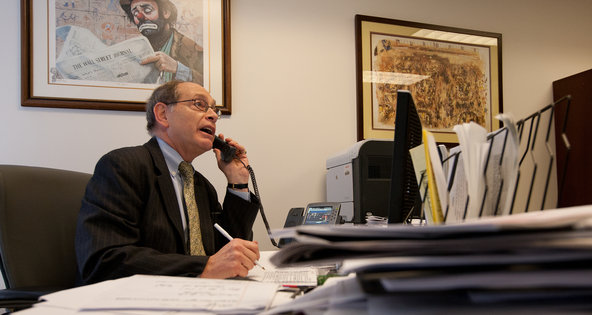BRUSSELS — A hotly contested tax on financial trades took a major step forward on Tuesday when European Union finance ministers allowed a vanguard of member states to proceed with the plan.
The so-called Robin Hood tax would apply a levy to trading in stocks, bonds and derivatives, complex financial products tied to underlying assets like oil prices or interest rates. Although the tax would probably be small — one-tenth of a percentage point or less on the value of a trade — it could earn billions of euros for cash-strapped European governments.
Algirdas Semeta, the European commissioner in charge of tax policy, called the decision “a major milestone in tax history” and said the levy could be imposed from next year. But deep concerns about how the initiative would work in practice still could mean delays.
The European Commission, the Union’s policy-making arm, will still need to draft the final legislation and the states in favor of the law will have to give their unanimous approval before it becomes law in the eleven countries that have agreed to send the proposal forward — two more than the minimum required for legislation to be drafted.
A significant complication is stiff opposition to the tax by Britain, which has the largest trading hub in Europe in the City of London. But because Britain has decided to stay outside the group of states applying the tax, its resistance probably would not stop the plan from moving ahead.
The session Tuesday was the second day of a meeting that began here Monday with a session by the Eurogroup of ministers from the 17 members of the euro zone. On Monday evening, in a nearly unanimous vote, the Eurogroup elected Jeroen Dijsselbloem, the Dutch finance minister, to be its new president.
Mr. Dijsselbloem, 46, a social democrat, has been finance minister of the Netherlands for only three months. In the Eurogroup, he succeeded Jean-Claude Juncker, the prime minister of Luxembourg, who had held the post since 2005 and announced his intention to step down last year.
The only formal opposition came from Luis de Guindos, the Spanish finance minister, who said his country and others with comparatively vulnerable economies — compared with those like Germany and the Netherlands — did not hold enough top jobs in the Union’s institutions.
At a news conference late Monday, Mr. Dijsselbloem emphasized the need to ease mistrust between Southern and Northern European countries over austerity policies, which many experts say have worsened economic pain in countries like Spain but have done too little to resolve the euro zone’s problems.
As for the proposed tax on financial transactions, among the 27 members of the full European Union it has firm backing from Germany, France and nine other countries. Others might still eventually support the proposal, which is an idea closely associated with James Tobin, a U.S. economist and Nobel laureate who suggested a version of it in the 1970s.
Britain, as well as Malta, Luxembourg and the Czech Republic, abstained from the vote on Tuesday.
Although Britain would not be required to assess the tax because of a special European procedure allowing it to opt-out, the law still could have an effect on its financial sector by raising the costs of transactions that also involve institutions based inside the tax zone.
The decision to move forward with the tax was “regrettable and likely to serve as another brake on economic growth,” Richard Middleton, a managing director at the Association for Financial Markets in Europe, an industry group based in London, said on Tuesday.
Backers of the tax originally expected the proceeds to go to humanitarian and environmental causes. But the debt crisis that exploded three years ago and the meltdown in the banking sector have adjusted priorities. Nowadays governments are keener to use the revenue to help prop up shaky banks and help finance the budget for running the Union.
The initiative could generate about €57 billion annually, or about 0.5 percent of E.U. output, if it were applied across the entire bloc, according to the European Commission. But that amount is likely to be significantly less without Britain’s participation.
The next stage is for Mr. Semeta, the European tax commissioner, to propose legislation. He has already suggested a levy of 0.1 percent of the value of stocks and bonds traded, and of 0.01 percent of the value of derivatives trades.
One challenge is formulating the law so it does not prompt traders to move to non-taxed jurisdictions.
Another is deciding who pays the tax when traders in cities like Frankfurt and Paris, where the tax would apply, conduct business with traders in cities like London or New York, where it would not.
Article source: http://www.nytimes.com/2013/01/23/business/global/robin-hood-trading-tax-nudged-forward-by-europe.html?partner=rss&emc=rss

